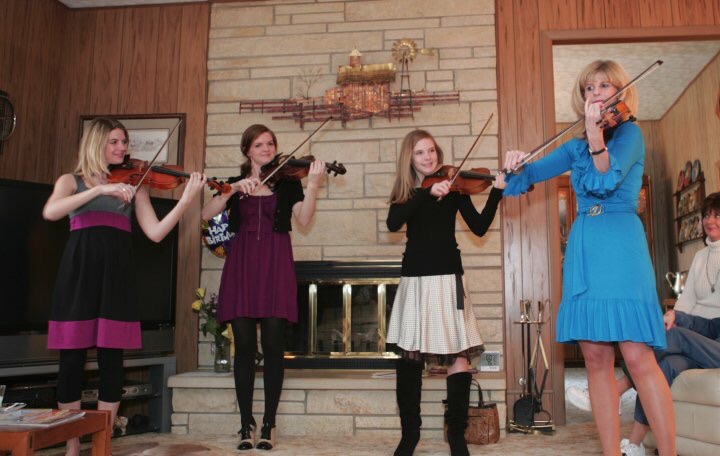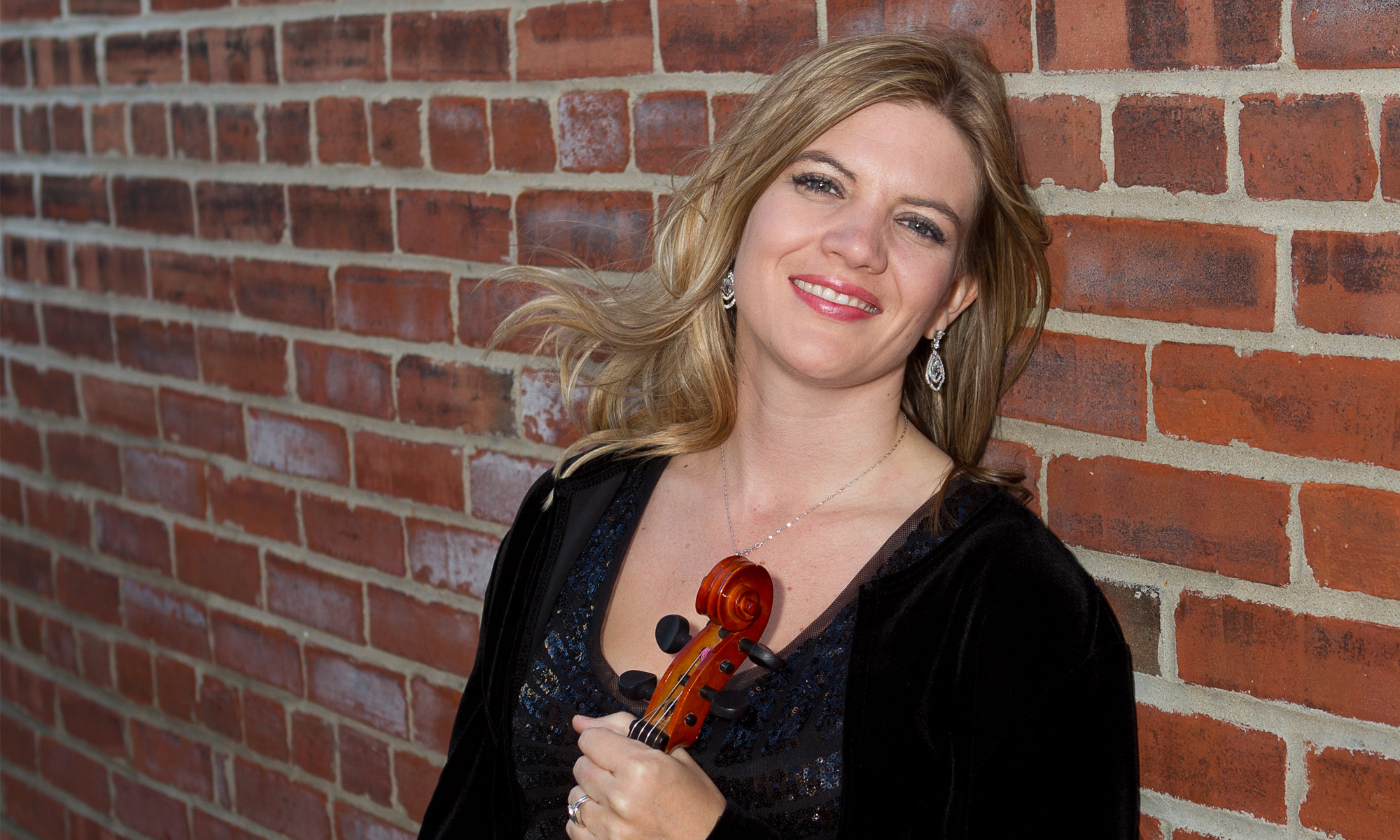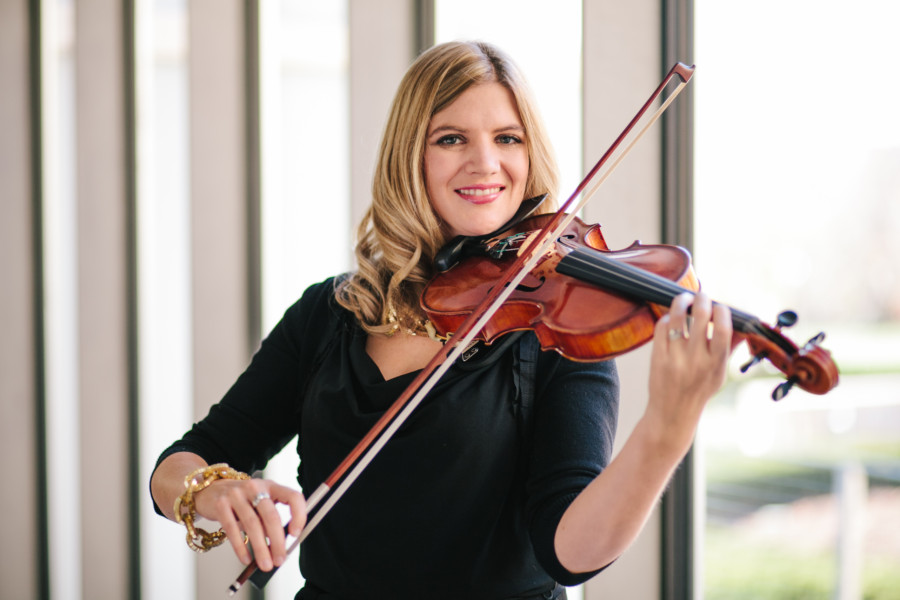
While most people find it daunting to motivate even one child to practice regularly, my mother Allison managed to motivate all four of my sisters and me to practice nearly every day from the age of 3 until we went to college, all of us with violin scholarships in hand. As the mother of a budding music student myself, I wanted to find out her tricks of the trade, not just as a professional violin teacher, but also as a busy mom, with all of the responsibility that entails! Check out the advice of a veteran teacher and mom!

What are some of the techniques you use to motivate your students to practice?
I try to make it so fun that the kids want to practice! With pre-school and early elementary school children I structure lessons and practicing like playing games, and I try to keep this up for as long as possible. However, realistically most kids would still rather play outside, (or now with their phones and tablets, etc.), so they need external motivation as well. Students need both short term and long-term goals. Short term goals involve small prizes, like a piece of candy from the teacher if they get an A at the lesson, or perhaps they could build a piece of a puzzle for every time they drill a difficult passage.

I also make sticker charts to keep track of students’ daily practicing, which result in long-term prizes. Long term goals and prizes need to be set up with parents. For example, if the student has a month of A lessons, he might get to have a special fun night out with mom or dad! It is best if parents have something to offer, because they know what would best motivate their child.
Middle school and high school students should understand that they must practice regularly, without the need of external rewards. At this point the reward should be the joy of performing. Group playing, including group lessons, music camps, and orchestral playing, also help motivate students because kids like the social aspect of playing.
What did you do to motivate your own kids (like me!) to practice? Did you have to adjust your technique between students and your own children?

I had to be stricter with my own children because I was the parent. Parents usually struggle with kids’ attitudes more than the teacher does. In addition to the short term and long-term goal charts, we also had attitude charts, where you could get a sticker for having a good attitude. In our house, practicing was a non-negotiable family rule as part of our daily life, just like clearing the table and picking up rooms. The social aspect definitely motivated my children. We performed together as a family and no one wanted to feel left out, so the kids would motivate each other to practice.
What advice can you give to non-musical parents when working with their children at home?
Parents should understand that they don’t have to know music; they have to know their child. Parents know how to motivate their child better than anyone else, and they can learn the music right along with the student. In the age of smart phones, parents can also take videos of the lesson, which is very helpful!
One of the great things about the Suzuki method is its emphasis on the Parent/Teacher/Student triangle. A good teacher should show you the small steps to take in your home practices. To use a sports analogy, the teacher is the coach, but the parent is the day-to-day trainer. Another important factor in the success of your child’s music lessons is the support of both parents. Often the moms come to lessons (although not always), so it means a lot to students when dads ask to hear them play as well! It also takes both parents to help make practicing is a priority at home.
Sometimes it seems that musical parents struggle the most at helping their kids reach the same musical level they themselves have achieved. What advice can you offer them?

I believe it is important to make your own children’s practice time a part of your studio schedule. Whenever possible, set up your kids’ activities first, and then your students’ lessons. Sometimes this requires creative thinking on your part as a parent. For example, I had my children practice at 6:30 every morning before school, due to after-school lessons and activities.
Regarding attitudes, try to look for the bigger picture, and use this as inspiration to persevere through the tough days. During the teen years, if possible have your kids take from another teacher so that you have the backing of someone who isn’t their parent. Coming from a Christian perspective, my long-term goal was always to help my children serve the Lord, whether that was in music like me, medicine like my husband, or something entirely different from us. However, I knew that if I wanted my kids to have a chance at a musical career, they would have to practice a lot to reach the high level of playing required in college. I had to think long-term in order to persevere through the short-term hurdles of bad attitudes, challenging repertoire, and musical disappointments. Students need good leaders to help them persevere, and often parents are their biggest inspiration!
Consider Music Book Clubs to help with motivation!
I would highly recommend Christine Goodner’s courses, as well as Dr. Renée-Paule Gauthier’s masterclasses for a deep dive into this subject!

